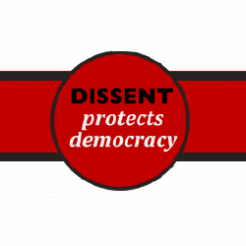The sector independence inquiry launched by the Baring Foundation is deeply flawed and will be a wasted opportunity unless its terms and methodology are completely revised, according to one of the responses to the inquiry consultation.
The National Coalition for Independent Action (NCIA) has used its submission to attack not only the design of the project but also the constitution of the panel appointed to lead it and the choice of Civil Exchange as the secretariat organisation.
In a damning critique, the NCIA contends that the analysis presented in the Independence Panel’s consultation document fails to realise the damage that has already been done to the sector’s independence by successive government policies, and the seriousness of the ongoing threat.
“Voluntary organisations have not lost their independence of thought and action simply through carelessness or the failure to assert themselves, but because successive governments have increasingly viewed them as instruments for achieving their policy objectives and have devoted themselves to ensuring that voluntary organisations are fit for that purpose,” it wrote.
“This process has reached its culmination in the adoption of the commissioning model of resourcing the sector…voluntary organisations are finding themselves – at best – relegated to the largely powerless status of sub-contractors; charities assisting commercial organisations to maximise their profits.”
The NCIA went on to condemn the “inappropriate, corporate-world management practices” that permeate the sector, where those in the organisation “look upwards to the chief executive rather than outwards to their users or the communities they serve”.
The government’s pressure for mergers and rationalisation of the sector is another attack on sector independence, it said. “We suggest that the Panel should look more closely at what government has been and continues to do to the voluntary sector rather than listening to the rhetoric of partnership and harmonious relationships used by government and those parts of the sector which have tied themselves to the mast of the ship of state.
“The damage already done to the sector is palpable…the task now is to work together to identify effective ways to get the government to back off.”
Independence Panel comprises ‘the great and good’
The NCIA also criticised the Baring Foundation’s “failure of imagination” in choosing Panel members.
“The great and good are strongly represented (no fewer than five CBEs) at the expense of people with a more recent and intimate knowledge and experience of working at the sharp end of local voluntary action.”
This concern about the Panel’s ability to really understand the threats is exacerbated by the appointment of Civil Exchange as the body to service the Panel’s work, the NCIA added. Its spokesperson, Caroline Slocock, spent most of her career in the public sector and has been quoted as saying that “charities must take up the offer to provide more services”.
“This is hardly the open-mindedness we hoped the Panel would bring to its task,” the NCIA wrote.
It concluded: “The idea of a Panel and annual report on the state of the voluntary sector’s independence is a bold and useful initiative…but the way the idea has been put into action is deeply flawed. Left as it is, we fear this will be a wasted opportunity.
“We urge you to revisit the terms of reference, to rebalance the source of advice and co-ordination that you have chosen to rely upon, and to revise the methodology underpinning the initiative.”
'We have our own arms'
The National Coalition for Independent Action describes itself as "an alliance of individuals and organisations who believe that we need to unite in independent voluntary and community action". Its two straplines are 'Dissent protects democracy' (pictured) and 'We are not an arm of the state - we have our own arms'.
The Independence Panel comprises:
- Dame Anne Owers, chair
- Andrew Hind, editor of Charity Finance and former chief executive of the Charity Commission
- Sir Nicholas Deakin, Emeritus Professor of Social Policy at Birmingham University
- Lord Hodgson, chair of the Deregulation Task Force and president of NCVO
- Sir Bert Massie, former Commissioner for the Compact
- Julia Unwin, chief executive of the Joseph Rowntree Foundation
- Louise Whitfield, associate solicitor at Pierce Glynn and an expert in public law
- Nick Wilkie, chief executive, London Youth









